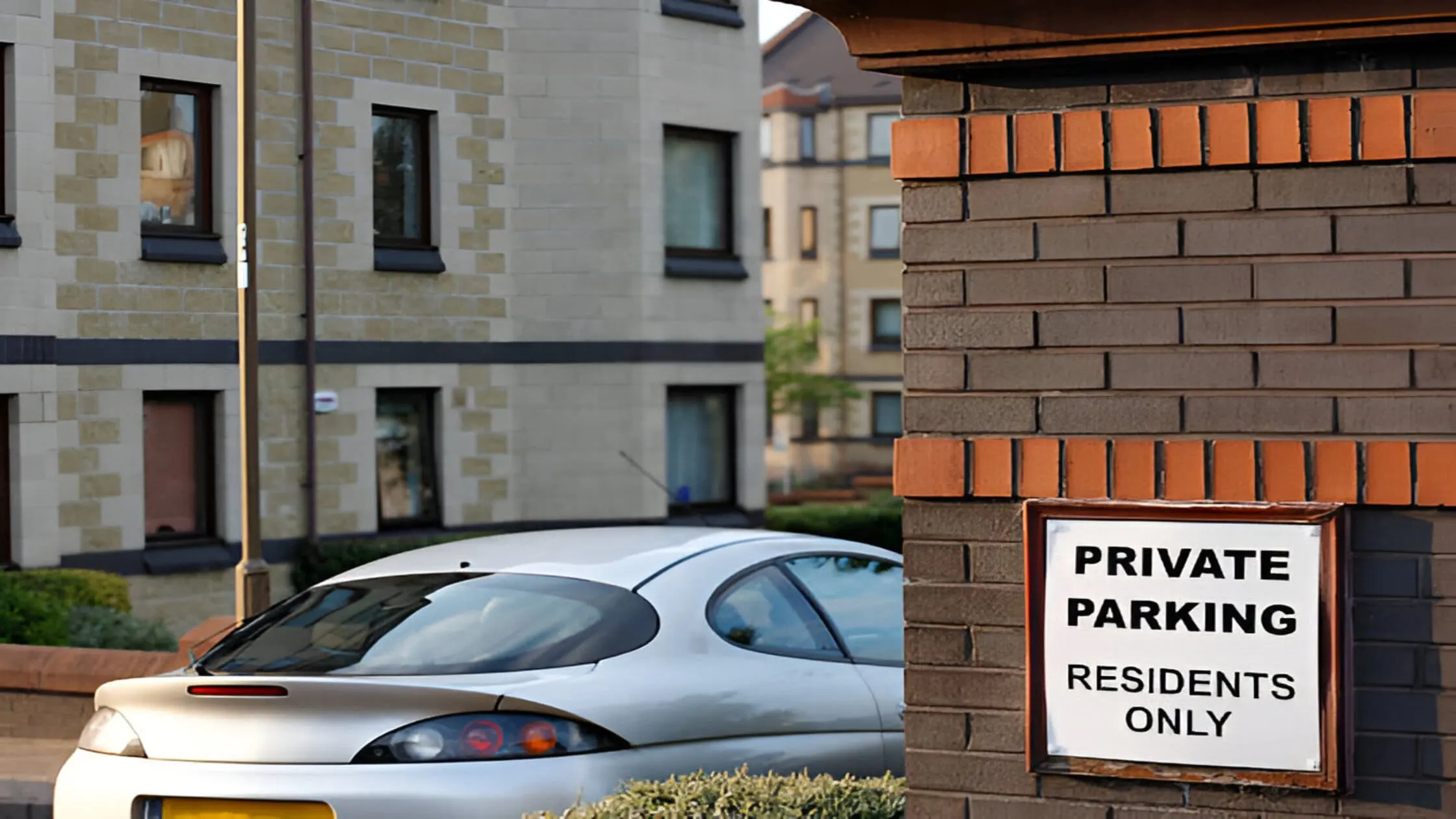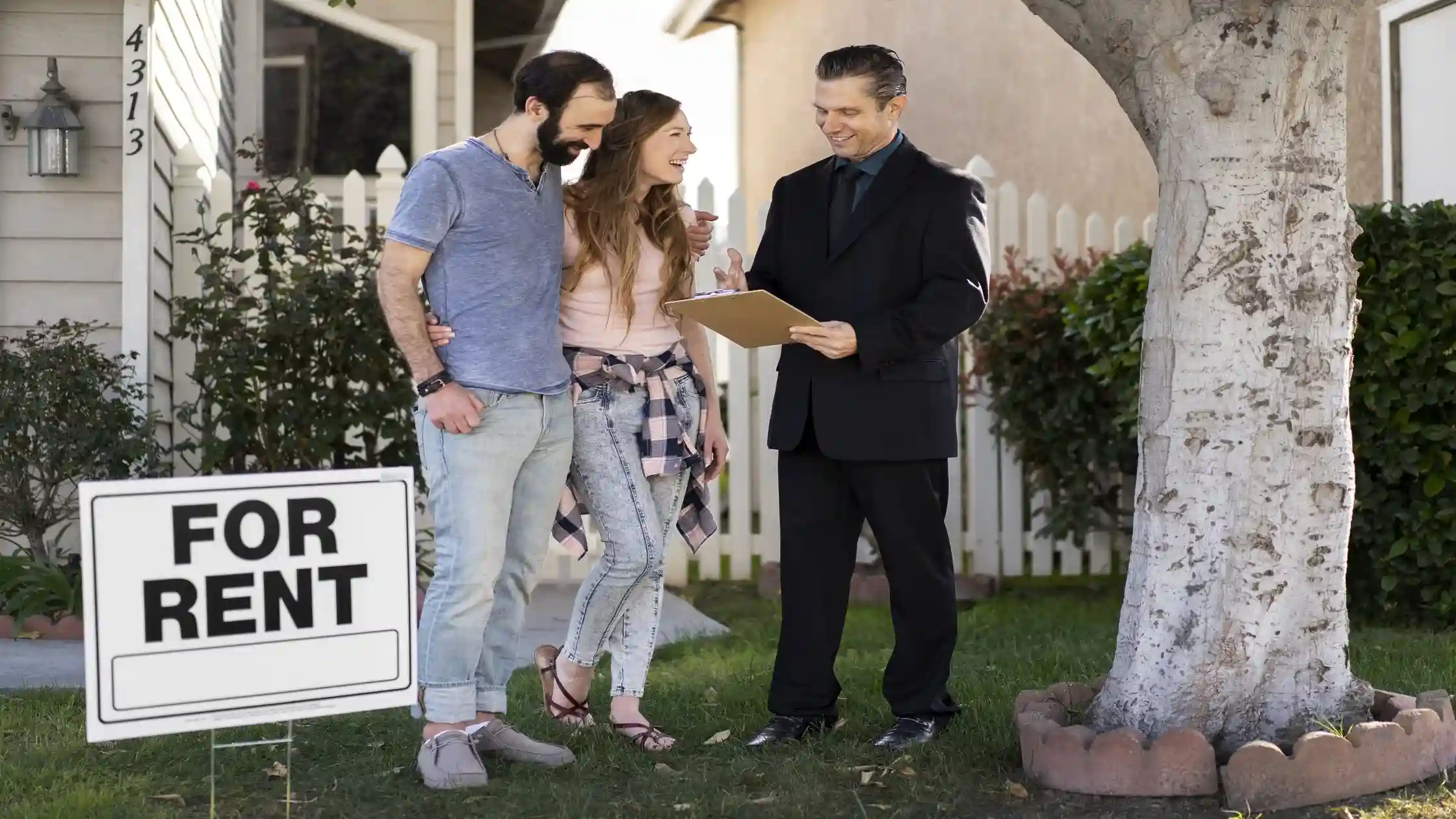Tenant parking rights are of concern to all renters and landlords. If your rental contract mentions a designated parking spot or prohibits cars, you would be interested in knowing your rights and the legislation. Always examine the apartment parking policy and regulations before moving in.
You may have the question, "Do landlords have to offer parking?" The answer may vary depending on your lease or city. If you need additional parking, find out if it would be possible to sublease a parking space. In California, tenant parking rights provide renters with strong protections.
Got an issue? Write it down and speak with your landlord. Need to avoid disagreements and protect your parking place? Read on for clear answers, real-life examples, and advice on what are your tenants' rights and how to deal with parking disputes.

Quick Facts: Tenant Parking Regulations
Why Parking Policies Matter in Rental Properties?
Parking is an important consideration for renters or tenants (not occupants) when deciding where to rent. Well-written parking policies avoid miscommunication, minimize complaints, and assist in safeguarding property value. Disputes quickly develop if parking privileges for renters are not defined in the lease.
For instance, residents might park in the incorrect stall or invite guests who occupy resident parking spaces. Without apartment parking policies, landlords will be faced with more problems and potentially infringe on local ordinances.
Parking rules also affect accessibility and safety. Emergency workers need to be able to access them. Disabled tenants might require special parking bays. If regulations are clear, you can anticipate what to do when an unwanted situation takes place. We always advise you to have a parking clause in your lease so it outlines what are the rights and responsibilities of the tenant.
5 Types of Parking Arrangements Landlords Should Understand
Landlords should be aware of the various parking options at rented premises. Each arrangement influences the parking entitlement of tenants and the landlord's responsibility. The 5 types of parking arrangements include:
- Assigned vs. open parking
- Private or reserved spaces
- Guest parking & visitor passes
- Renting a parking space separately
- Special parking: tandem, valet, stacked
Assigned vs. Open Parking

Assigned parking gives a specific parking space to each tenant. It prevents confusion and makes it simple to know where everyone is parked. Apartment 3A, for instance, has parking space #12.
Open parking is something entirely different; any person can drive into any available open parking space. The definition of open parking is straightforward: first-come, first-served. That is great in a big parking lot, but it causes problems when parking spaces run low.
Private or Reserved Spaces

There is a reserved private parking area for one tenant or unit. They are typically painted, or there is a number-marked sign on them. An upscale apartment may provide every inhabitant with their own private garage. They may be included in the rent or lease for an additional fee.
There have to be clear guidelines on who can use the space and what would occur to another individual if they parked there by accident.
Guest Parking & Visitor Passes

Visitor parking enables residents to have visitors without occupying resident space. Visitor passes or restricted hours on how long a visitor may park are employed in some buildings.
For instance, a building may permit parking by visitors for up to 24 hours in particular zones. In the event the visitor overstays, the vehicle may be towed. Including visitor parking rules in your lease prevents trouble.
Renting a Parking Space Separately

Sometimes, the renters can rent an extra parking space for a fee. Leasing of a parking space separately is common in crowded areas. For example, a renter who has two cars can rent an extra space for an extra cost. In all situations, put an arrangement in writing with the charge, address, and terms for canceling the contract.
Special Parking: Tandem, Valet, Stacked

Certain structures employ special parking systems such as tandem (behind a single vehicle), valet, or stacked parking. These systems should be well-defined. For instance, for tandem parking, the tenants have to work together in order to back out vehicles.
Stacked parking systems often utilize mechanical lifts to allow one vehicle to be parked directly above another, requiring specific operational procedures. On the other hand, valet parking involves tenants handing over their keys. Ensure your lease specifies how such systems operate and tenant parking rights.
Do Landlords Have to Provide Parking?

Whether or not landlords have to provide parking will differ based on many factors. There is no broad-spectrum rule, so make sure to check local laws and your lease agreement.
- Regulatory mandates: In a few cities, landlords have to provide a minimum quantity of space, particularly in new construction. Others do not. For instance, tenant parking entitlement in California varies according to state and local legislation, where there can be a requirement for mandatory accessible parking or a minimum quantity of spaces for multifamily units.
- Property type: Single-family homes may feature driveways or garages as part of the property. Multifamily homes might have community lots or garages. Off-street parking might be mandated by a zoning ordinance for some properties.
- Lease agreement: If the lease guarantees a parking space, the landlord is under the duty to offer it. Otherwise, do landlords owe to deliver parking? Generally, no, unless by statute. If you don’t know how to write a proper lease agreement, feel free to check our lease agreement templates on our website.
- Zoning regulations: Municipal zoning regulations can mandate the number of parking spaces per unit. Always check your city regulations prior to renting out a building.
If parking is not feasible, include that in your lease agreement. It creates expectations and prevents disagreement regarding what the tenant's rights are regarding parking.
Get clarity on your rights and make every spot count with LeaseRunner.

Don’t Let Vague Parking Rules Cost You
Common Legal & Practical Parking Concerns for Landlords
Landlords need to respond to some standard questions regarding parking. Knowing the rules defends your property and satisfies your tenants.
Can a Landlord Take Away a Parking Space?
Can a landlord retake a parking space? Only if permitted in the lease or under local legislation amendments. For instance, when a lease guarantees a spot, the landlord cannot cancel it without the tenant's permission.
If the lease is not specific, the landlord may be more lenient but must provide notice and a good reason. Taking away parking without a good reason may result in legal issues.
Interest in a full detailed checklist of what a landlord cannot do? Check out these 10 essential rules to follow when you start out as a new lessor or landlord.
Can a Landlord Limit the Number of Vehicles?
May a landlord restrict the number of cars? Yes, if a restriction is stated in the lease agreement or property regulations. For instance, a lease can state one car per unit or per tenant. This avoids overpacking and allows all inhabitants enough room.
When a tenant brings in more cars than permitted, the landlord may enforce the limitation by towing unauthorized cars or issuing warnings.
What If the Lease Doesn't Mention Parking?
Typically, tenants have no right to parking except by precedent, practice, or law. Landlords should make parking policies clear in writing to prevent conflict. If tenants habitually park at the same place, taking it away would be an alteration of the terms of the lease.
Can You Charge for Parking Separately?
Landlords can charge more for parking if it is permitted by the lease. Parking space leased separately is not unusual in city centers where parking spaces are lacking. A landlord, for instance, may lease a garage for another $100 a month as an additional cost on top of rent. Always place parking charges and conditions in writing.
What Counts as a “Private” Parking Space?
A parking space is assigned to a single tenant or unit. The spaces are typically sign-posted and can be part of the terms of the lease or rented separately. For instance, a higher-paying tenant who rents a garage has sole use of the area. If some other tenant uses the space, then the landlord can invoke the rule or tow the vehicle away.
Parking and Disability Rights (ADA & Fair Housing Compliance)
Landlords are required by the Americans with Disabilities Act (ADA) and the Fair Housing Act. This means having accessible parking for disabled tenants. For instance, a disabled tenant in a wheelchair can ask to be parked close to the front.
Denial of reasonable accommodation is illegal. Always include ADA guidelines in your apartment parking rules and regulations.
Key Elements of a Clear Parking Policy in Your Lease Agreement
A well-written rental must include all parking information. This is to safeguard landlords and tenants and also to clarify tenants' parking rights. Below are the key elements that should be included in any parking policy in your lease:

1. Designated Parking Space
Specify the number or location of the parking space assigned to each tenant. For instance, “Tenant is assigned parking spot #5 in the west lot." If open parking or first-come, specify open parking and any restrictions.
2. Parking Rules and Regulations
All apartment parking rules and regulations must be included in the lease. It can include:
- The number of vehicles each tenant can park
- Where guests can park and for how long
- What if you park somewhere you shouldn't
- Penalties for rule-breaking
3. Parking Payment and Charges
If payment is being taken for parking, name the amount, when it is paid, and what will occur should it be paid late. For instance, “$50/month parking charge is paid with rent."
4. Amendments to Parking Policy
Name how and when parking regulations can be amended. For instance, “Landlord can change parking assignments with 30 days' notice."
5. ADA and Fair Housing Compliance
It's crucial for landlords to clearly outline how tenants can request accessible parking, ensuring compliance with the Americans with Disabilities Act (ADA) and Fair Housing Act. For instance, the lease should state: "Tenants requiring a disability accommodation for parking can submit a written request to the management, detailing their needs."
Clearly defining this process in your lease not only prevents conflicts but also safeguards tenants' rights to reasonable accommodations in parking.
Handling Parking Disputes the Right Way
Parking disputes are inevitable in rental homes. Sorting out things on time and neutrally keeps the tenants content and minimizes legal liabilities.
How to Address Complaints Between Tenants?
When tenants are at odds over parking, hear from both sides. Read the lease and property regulations. For instance, if two tenants are fighting over the same location, read who is allocated it. Inform tenants about the apartment parking policy and rules, and provide alternatives, like reassigning spots or providing guest parking.
What to Do When a Tenant Violates Parking Rules?
When a tenant violates apartment parking regulations and policies, act promptly and in words.
Begin with a written notice. For instance, if a tenant leaves their car in another resident's reserved personal parking space, send: “Dear Tenant, our files indicate your vehicle in space #12, which is for another resident. Adhere to the parking policies outlined in your lease. Repeated occurrence can warrant towing or penalties."
Grant a temporary grace period to the tenant to rectify the situation. If the tenant continues to violate rules, for example, parking additional cars beyond the landlord's permitted number of cars, issue a formal notice in terms of penalties.
This may be fines or parking privileges. Tow a vehicle only as a last resort and ensure this is permissible under the tenant parking rights and in local law. Document warnings, notices, and actions for every offense at all times. This insulates you and demonstrates that you enforced the rules equally.
When Can You Legally Tow a Vehicle?
You can tow a vehicle if it obstructs emergency access, is abandoned, or repeatedly disregards regulations. Local law might demand notice. For instance, post a notice at the entrance to inform unauthorized vehicles that they will be towed at their expense. Document all warnings and actions.
Dealing with disputes fairly and in line with procedure protects tenant parking rights and keeps your property smoothly operating.
City-Specific Spotlight: Tenant Parking Rights in California
California has some of the most far-reaching tenant parking rights in the US. Both the state and local laws apply to landlords.

California Civil Code & Parking Protections
Under the California Civil Code, parking that is covered under a lease can be revoked by the landlord during the lease period only with the permission of the tenant. The rights of the tenant over parking are safeguarded under law in California, and any deviation has to be consented to in writing.
For instance, if a tenant leases an apartment that has a parking lot associated with it, the landlord cannot revoke it without the tenant's permission.
Rent Control Laws Affecting Parking
In rent-regulated cities, parking charges and regulations are generally controlled. For instance, in Los Angeles, the landlord cannot increase parking charges or eliminate a parking spot without adhering to rent control laws.
If parking is already covered in the rental charge, it falls within the ambit of rent control provisions. Be sure to look up local laws for the latest details.
California also mandates that landlords make disabled tenants' parking accessible. Not doing so may result in fines or suits. The best method of defending tenant parking rights in California is to place certain parking terms in the lease.
Bottom Line
Tenant parking rights are an important aspect of rental property management. Understanding local laws, establishing clear apartment parking rules and restrictions, and communicating honestly may help landlords avoid issues and keep renters pleased.
LeaseRunner assists landlords in creating lease agreements that clearly define renters' parking entitlements, including allocated, open, and private spaces. Remember that clear regulations and fair enforcement are the keys to ensuring a positive parking experience for everybody.
FAQs
Q1. Do landlords have to provide parking?
Not always. It depends on the lease, property type, and local zoning laws. In some cities, landlords must provide parking; in others, it's optional.
Q2. Can a landlord take away a parking space?
Only if allowed by the lease or local law. If the lease promises a space, the landlord cannot remove it without the tenant's consent.
Q3. Can the landlord limit the number of vehicles?
Yes, if the lease or property rules set a limit. For example, a lease may allow only one car per tenant.
Q4. What does open parking mean?
Open parking means spaces are not assigned. Tenants park anywhere on a first-come, first-served basis.
Q5. Can landlords charge for renting a parking space?
Yes. Landlords can charge extra for parking if stated in the lease. Always put parking fees and terms in writing.







